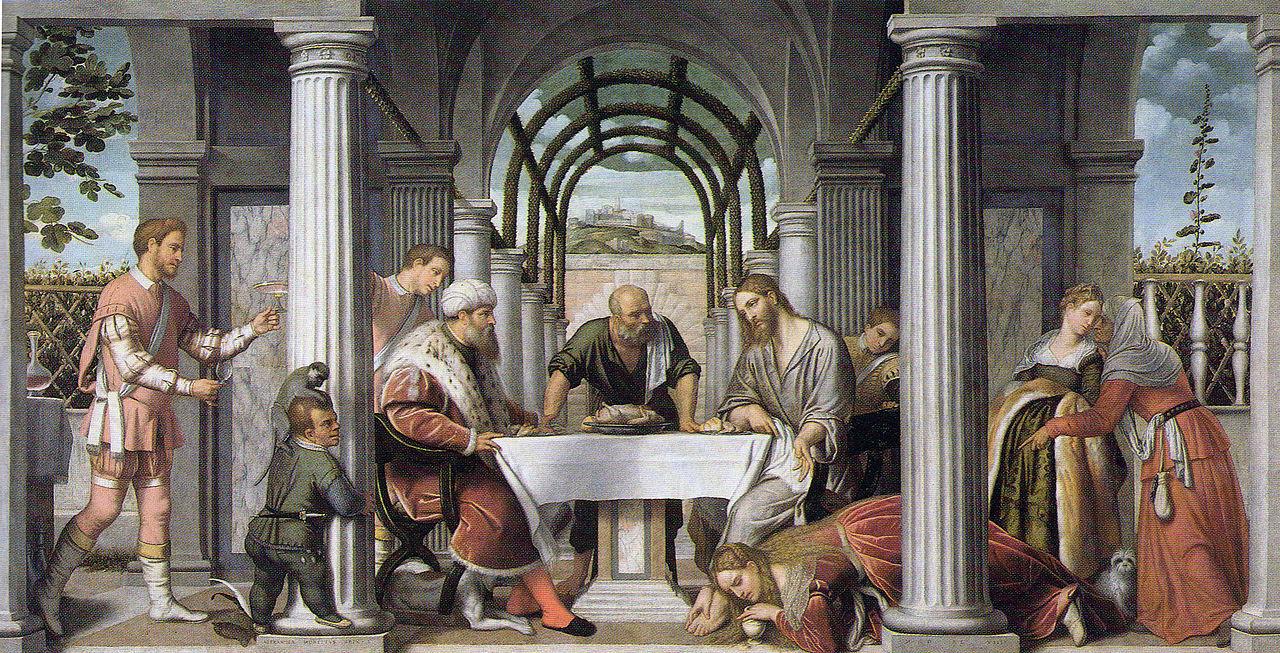In this commentary on the Gospel, Friar Luciano Audisio reflects on the gesture of Jesus in teaching that the last place is, in reality, the place of gratitude. It is an invitation to live our relationships with simplicity, to recognize that everything is a gift and to make room in our hearts for the last ones, where God manifests himself.
Jesus on the Sabbath: sign of freedom
This Sunday’s Gospel places us in a very concrete setting: Jesus, on the Sabbath, in the house of a chief Pharisee, where he heals a sick man and then speaks about those who seek the first places at banquets.
The detail of the Sabbath is not secondary. For Israel, the Sabbath is the day dedicated to God, the time that He Himself set aside to be with man after creation. It is not simply “going to synagogue”, but consecrating the whole day to the Lord, remembering that life has an ultimate meaning: to be with Him.
The Sabbath, moreover, is the memory of the liberation from Egypt, the day on which Israel remembers that it is no longer a slave. It is a day of freedom, of gratitude, a time of rest that reminds us that we do not live under the tyranny of Egypt or the modern idols that enslave us.
Jesus heals and delivers
In this context, Jesus performs a concrete liberation: He heals a sick man, freeing him not only from his physical ailment but also from marginalization..
And then, by talking about the first places at the table, it leads us to a deeper liberation: that of our relationships.
The table: laboratory of relationships
Many times our relationships are not free. They become self-serving, like hidden contracts or even with violence. God’s beauty is not transparent there.
Jesus, on the other hand, shows us that the table – the place of the shared meal – is the true laboratory of human relations..
Because eating together reveals our vulnerability: we eat so as not to die, and yet every meal reminds us that one day we will die. To eat is to confess that we need the external, that we are not self-sufficient, that we depend on others… that we are not God.
Jesus, fullness of the gift
Here we understand why Jesus is the ultimate key to this very human act: when we eat, something dies so that we may live.
In Him, this truth reaches its fullness: Jesus is the one who dies to give us life.
This is why the shared meal becomes Eucharist, in thanksgiving, in a school of how to live together.. The only way to assume that someone dies for me is thanksgiving.
“Eucharist means just that: to give thanks.”
The last place: living in gratitude
From this perspective, Jesus’ teaching about occupying the last places takes on new meaning.
It is not a matter of false humility or a manipulative strategy, but of recognizing that we receive everything from God through others, that we are the last link in a chain of gifts.
To live in the last place is to live gratefully, eucharistically, valuing what we receive even from those who are difficult for us.We value what we receive even from those who are difficult for us, because they also nourish and shape our life.
Jesus himself is the one who always chose to occupy the last place: the excluded, the condemned, the rejected by all.
Giving first place to the last
Every time we listen to this Gospel, it invites us to repeat with our lives an essential gesture:
“To say to the last one, to the crucified one: come forward, take first place in my heart.”
That is our spiritual life and our liturgy: to give the first place to the one who was considered the last.
The gratuitousness of God
That is why the last words of this Gospel speak to us of gratuitous welcome. Jesus invites everyone, unconditionally, to his banquet. And that gratuitousness is God’s signature.
Living the Gospel today
Living today’s Gospel means recognizing that our relationships are the place where God sustains us and gives us life.
It means learning to be grateful, to live from the Eucharist, and to make room at our table and in our hearts for Jesus and for all the “last ones” of this world.
Because in them, always, the Lord awaits us.


